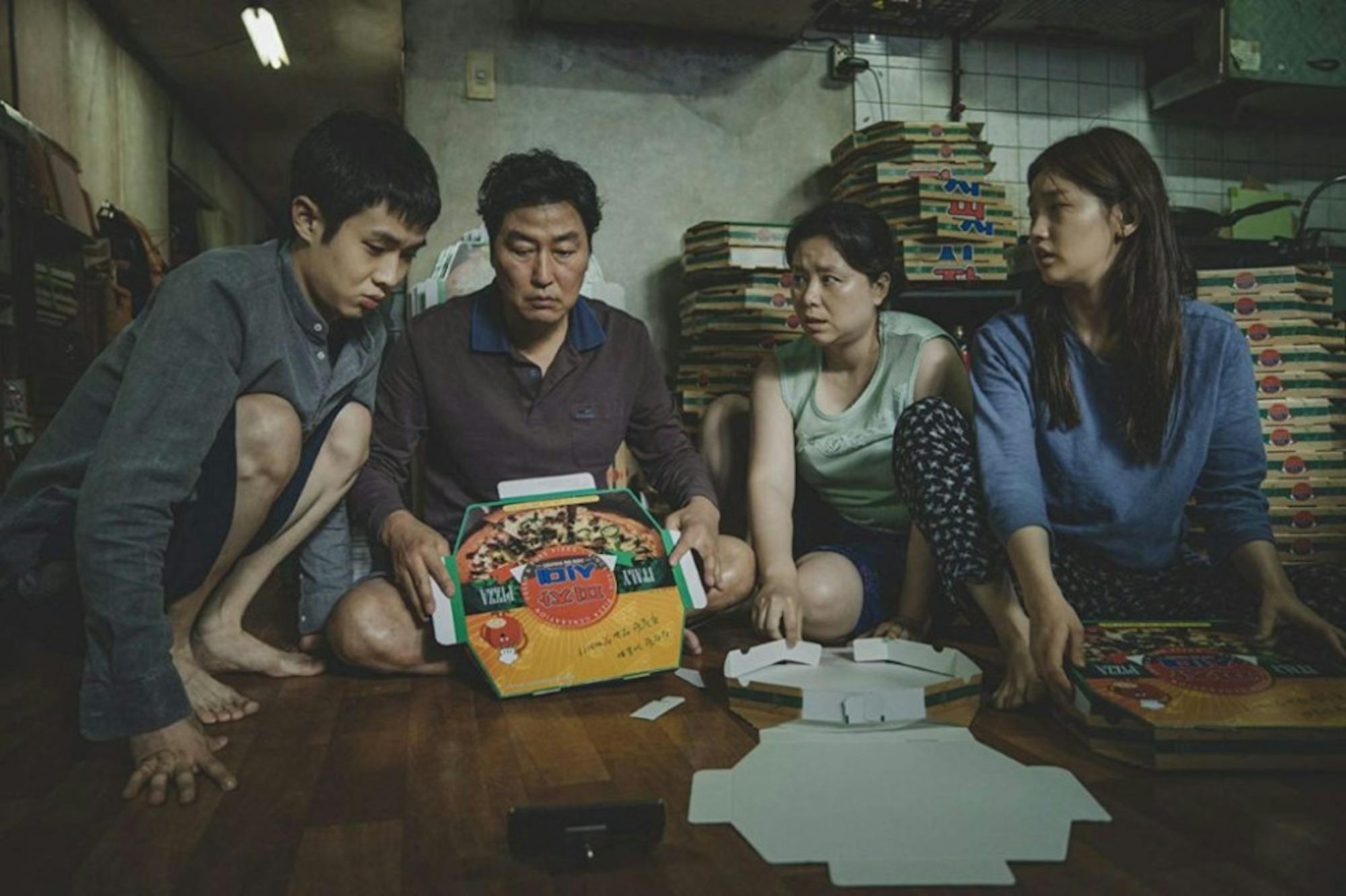
Bong Joon-ho’s latest film, “Parasite,” is a success in cinematic craft and narrative storytelling. The film, which may very well be the best of the year, world-premiered in May to rave reviews at the Cannes Film Festival, where it unanimously won, for the first time since 2013, the coveted Palme d’Or award. “Parasite” was also a historic win, as no Korean language film had ever won the Palme d’Or before. And by no means was this win undeserved. As more and more people have seen “Parasite,” it has become one of the most hyped films in recent memory with few detractors to be found. And the excitement surrounding this film is well-deserved. “Parasite” is a rare film without any comparison, a completely idiosyncratic creation. It is a film that encompasses every feeling on the emotional spectrum, a film which can be both immensely funny as well as devastatingly sad, terrifying yet warm. It is a perfect balance between several genres: heist film and dark comedy, social thriller and family drama, biting satire and horror film.
Ki-woo’s (Choi Woo-shik) friend Min (Park Seo-joon) offers him a job as a tutor for the daughter of the wealthy Park family. Soon afterward, he schemes to have his sister Ki-jung (Park So-dam) implemented as an art tutor to the Park son, who is an art prodigy. As the film progresses, Ki-woo and Ki-jung slyly incorporate the rest of their family into the Park household. This arrangement works for both the Parks and the Kims, until the narrative suddenly shifts. And to spoil anything that follows would be a disservice to any reader, but suffice it to say that the rest of the plot is unpredictable and is best seen without prior knowledge of what is to follow.
The issue at the heart of “Parasite” is the way that different classes interact with each other in modern South Korea. There are two main locations depicted in the film: the Parks’ mansion, located atop a hill in a nice area of Seoul, and the Kims’ shabby establishment, located halfway below the ground, where the Kims are just able to peer out at a world they don’t have access to. However, “Parasite” does something that viewers don’t often see in films regarding class: it humanizes both the rich and the poor, whereas other films such as “The Wolf of Wall Street” or “The Florida Project” only focus on the rich or the poor, respectively. Both families do morally questionable things, but the viewer is never confused as to why a character acts the way he or she does. Neither the Park family nor the Kim family are portrayed as evil or righteous, just as ethically ambiguous. Yet each character is written well enough for the audience to continue to root for them, even as the Kims disrupt the livelihoods of innocent people to establish themselves within the Park household, or as the Parks act in blissful ignorance of the monetary situation of the other characters around them. Even as the film takes its sudden left, dark turn within the second half, everything remains believable.
“Parasite” poses challenging themes and ideas, most of which come in the second half of the film, which is best left unspoiled. In this second half “Parasite” reveals its true thematic nature as a film in which no family can truly win in a game they don’t even realize they’re a part of. It asks what the role of the rich is in class warfare, especially when the poor are willing to descend upon each other rather than on the rich. And the final shot of the film brings home all of these themes in a devastating, heartbreaking manner.
The film succeeds in both its ideological convictions and its genre thrills. Not only is it one of the best crafted, most meticulously directed films of the year, “Parasite” is also the most massively entertaining film of the year in every which way. A film this rich thematically and this deeply entertaining must be seen in a theater. So see it. See it twice.
Grade: A




